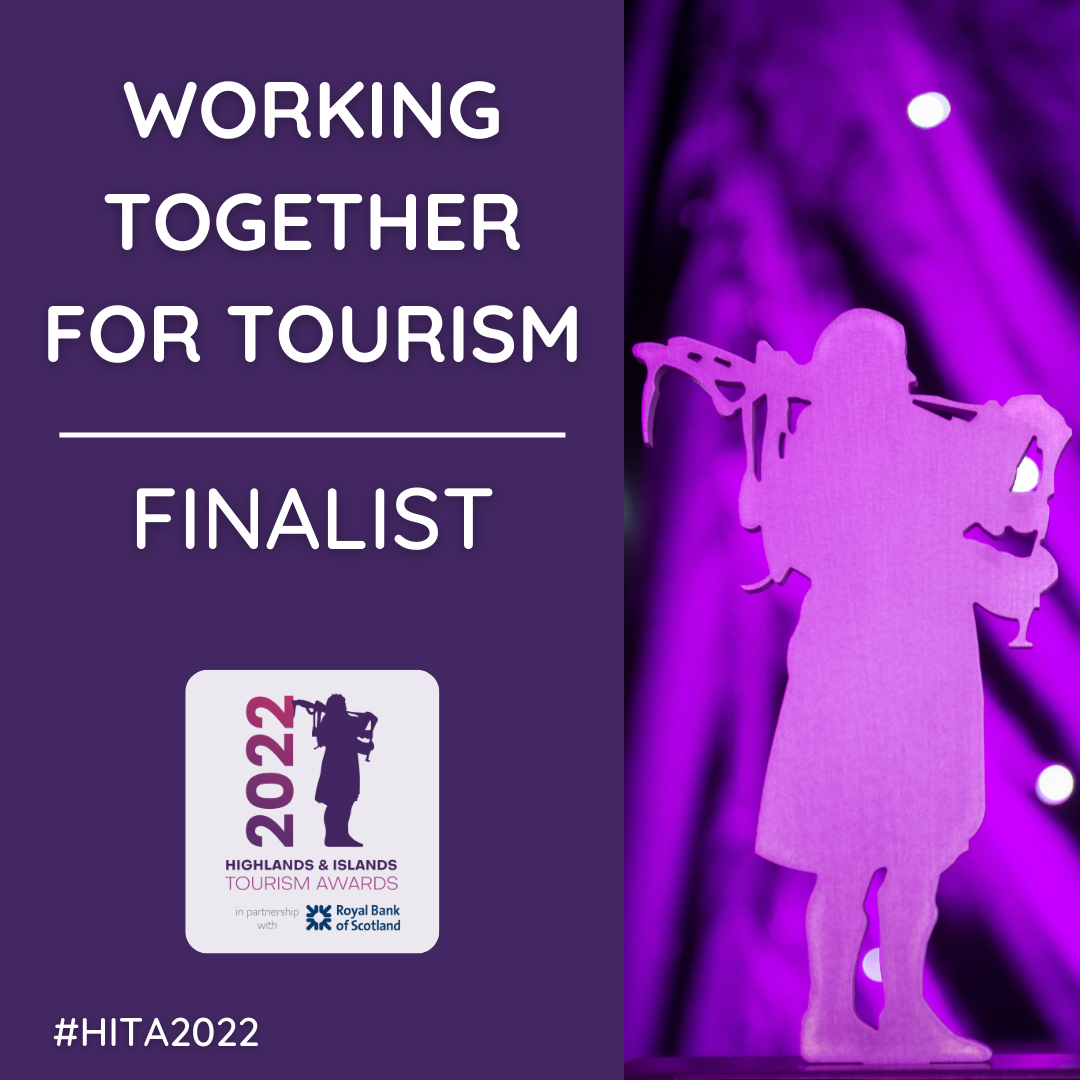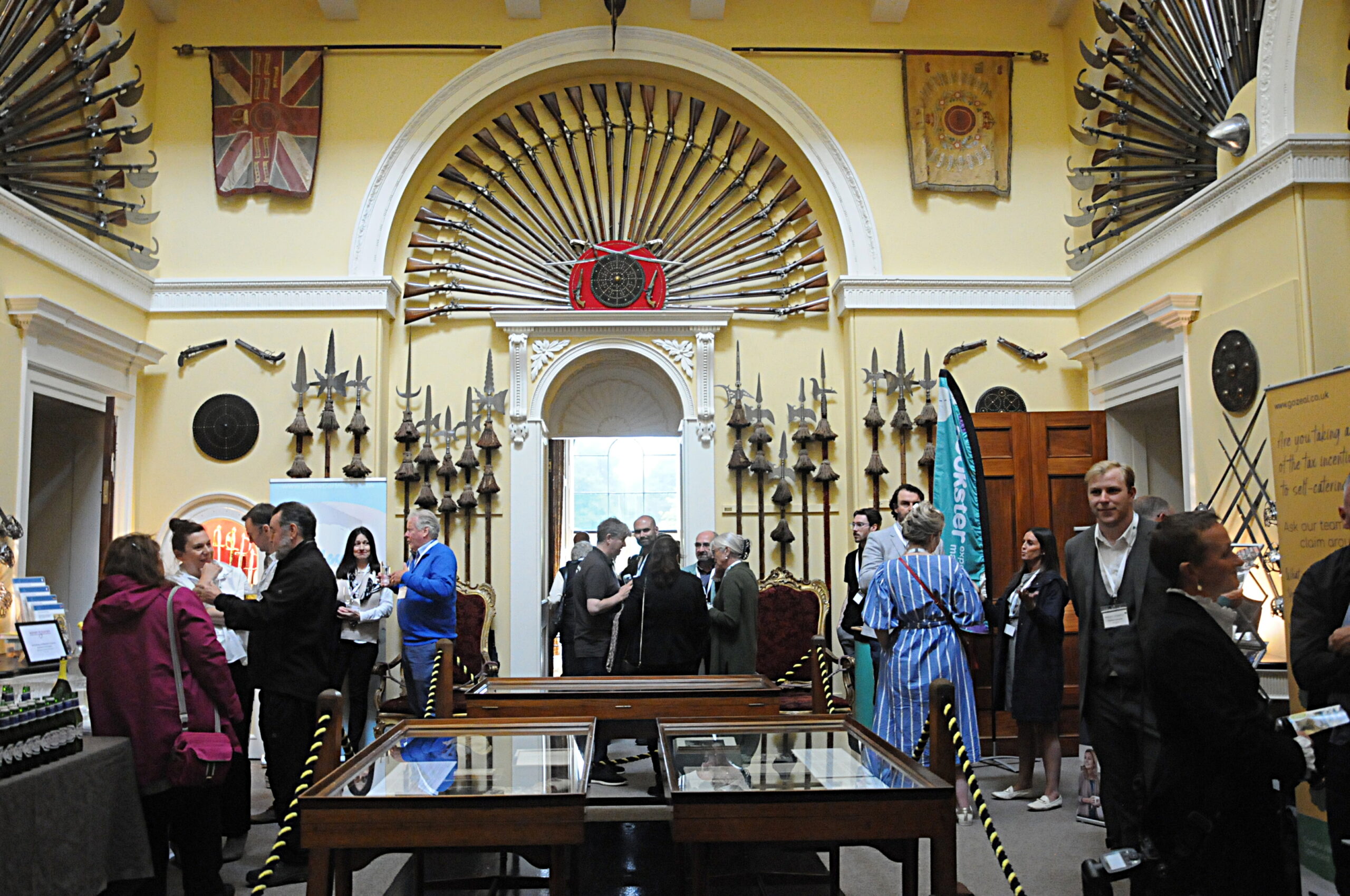Category: Press Release
ASSC Shortlisted in the Working Together for Tourism Category at the Highlands and Islands Tourism Awards 2022
The ASSC has been shortlisted in Highlands and Islands Tourism Awards for the Working Together for Tourism Award 2022.
This category celebrates partnerships, collaborations and team working, whether that be with local businesses, communities or a group of individuals. Finalists have shown to have operated a collective approach to deliver activity created as a direct result of Covid-19 and which has had a positive effect on staff, customers, visitors and/or the local community to ensure that everyone could have a confident and positive experience.
The Association of Scotland’s Self-Caterers (ASSC) developed the Cleaning Protocols and Sectoral Guidance for Self-Catering Properties in the Context of Covid-19 in collaboration with the Professional Association of Self-Caterers (PASC UK), Premier Cottages, and Wales Tourism Alliance, that were endorsed by the UK, Scottish and Welsh Governments. The ASSC commissioned on-line training to sit alongside the protocols and FAQs.
The ASSC managed to persuade the Scottish Government to allow self-catering businesses to open ahead of schedule on 3rd July 2020 in response to the robust nature of the cleaning protocols. We managed to evidence that if the self-catering sector opened on 3rd rather than 15th, it represented an additional £20m to the Scottish economy.
Fiona Campbell, Chief Executive of the Association of Scotland’s Self-Caterers said:
“‘The Cleaning Protocols and Sectoral Guidance for Self-Catering Properties and Short-Term Lets in the Context of Covid-19’ supported the sector through the pandemic and enabled operators to ensure the safety of their guests, their cleaning staff and their communities.
“Throughout the pandemic and as we continue navigate out of it into the ‘New Extraordinary’, with all the associated challenges, the ASSC has fought the corner of its members, kept them informed of unfolding developments, and engaged with leading tourism stakeholders, MSPs and the Scottish Government to ensure the best outcome possible for our sector.
“We are absolutely delighted to have been shortlisted for this award. This represents recognition for all of the incredibly hard work not only of the ASSC, but of every single one of our members. We could not be more proud.”
Press Release: First Regional Get-together Kicks Off Summer Season in Style
The Association of Scotland’s Self-Caterers held the first of their 2022 get-together events at Inverary Castle on Wednesday 8th June. The evening reception, hosted by Torquhil Campbell, Duke of Argyll, was a roaring success with over 100 guests in attendance.
The purpose of the event was to toast being able to see one another in person, once again, to honour the resilience, determination and professionalism of ASSC members and to celebrate the vital role of self-catering in Scottish tourism. Also, to recognise the continuing hard work of the ASSC, ensuring that Scottish self-catering has a voice that is being heard by decision-makers at every level of government throughout the country, and to thank those who have supported us.
The event saw presentations from the ASSC’s Chief Executive Fiona Campbell, Rob Dickson, Director of Industry and Destination Development, VisitScotland, Marc Crothall MBE, Chief Executive, Scottish Tourism Alliance and Cathy Craig, Chief Executive, Argyll & the Isles Tourism Co-operative.
The event was also attended by Fergus Murray, Head of Development & Economic Growth, Argyll & Bute Council, Councillor Mark Irvine, and Provost Maurice Corry, alongside partners and trade suppliers and, of course, Members of the ASSC.
Attendees were treated to spectacular whisky cocktails from North Star Spirits, canapes from Cu Mara Bistro, supported by Loch Fyne Oysters, Chrystal’s Shortbread and Tunnock’s.
Association of Scotland’s Self-Caterers Chief Executive, Fiona Campbell, said:
“It was truly wonderful to hold our first get-together event of the year and to see so many smiling faces in person. It was a true celebration, after the torrid time that the sector has endured and the challenges that we continue to face.
“I want to think our generous host, The Duke of Argyll, as well as all of our speakers, partners and attendees for making this event so much fun and so special. We are already planning the next one.”
A video to give a flavour of the event, from one of our sponsors, North Star Spirits.
Testimonials from Partners:
“”I loved the event… beautiful canapés, interesting people, casual format. Some great connections made. It was great to meet so many enthusiastic members and put names to faces. We will be happy to attend the next regional event and are here in the meantime to support ASSC Members” DM Hall
I had a great time at the event, it was by far one of the best events that I’ve attended” Zeal


